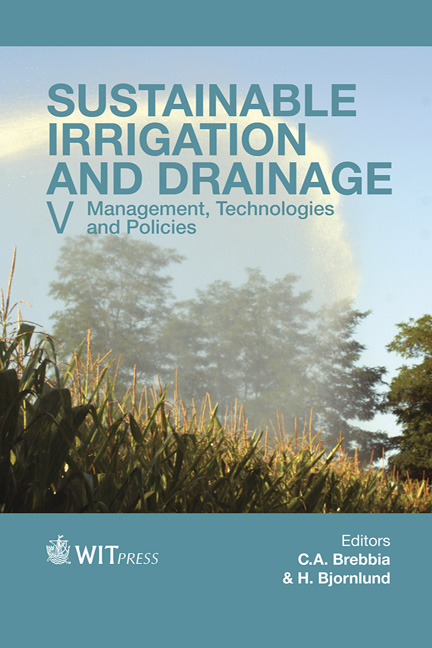The Impact Of Irrigation Farming On Livelihood Strategies Among Smallholder Farmers In The North West Province, South Africa
Price
Free (open access)
Transaction
Volume
185
Pages
12
Page Range
223 - 234
Published
2014
Size
358 kb
Paper DOI
10.2495/SI140201
Copyright
WIT Press
Author(s)
A. Balarane, O. I. Oladele
Abstract
This study aimed to determine the impact of irrigation farming on livelihood strategies among smallholder farmers in the North West Province, South Africa. Simple random sampling techniques were used to select 66 male farmers from the population of the study and data was collected through the use of a structured questionnaire and subjected to analysis using frequencies, percentage and multiple regression analysis. The results showed that about 9% of the respondents were below the age of 40 years. While 65% of the respondents were above the age of 50 years. The result also showed that 3% of the respondents are divorced while 71.2% were still married. The results showed that only 7.6% of the irrigation land is privately owned and 92.4% belongs to the chief. About 54.5% of respondents survive from government grants and 22.7% survive from seasonal jobs. About 53% of the farmers indicated that they are involved in irrigation farming, only because the existing irrigation schemes is their only source of income. While about 47% of the farmers are in the irrigation farming for personal interest. Farmers showed that they have adequate access to livelihood aspiration such as physical capital, human capital, natural capital and skill training but access to financial capital, which includes credit from the banks, cooperative and government subsidies is not adequate. Significant determinants of livelihood strategies of farmers were marital status (2.43), size of household (t = 5.41), nonfarm activity (t = 1.73) and income (t = 6.59).
Keywords
irrigation farming, livelihood strategies, smallholder farmers, South Africa





